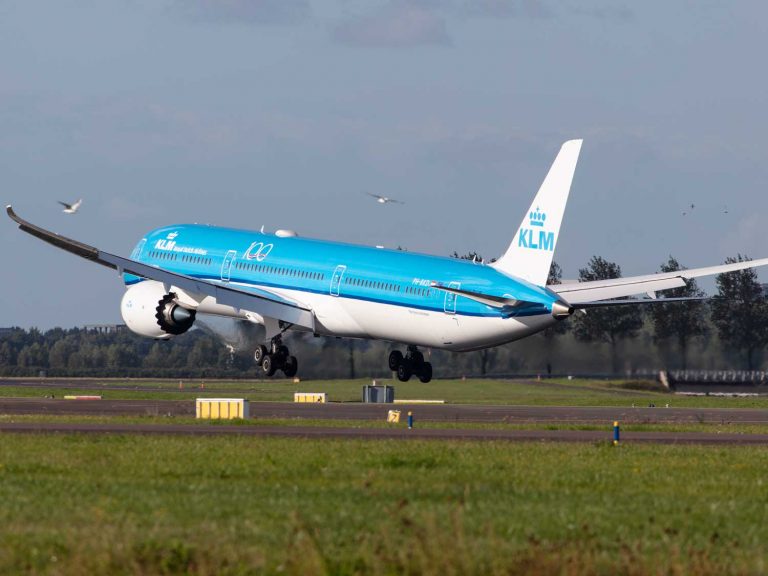
Date:
Supporting sustainable fuel for air and sea freight
As we move into our second year of Sustainable Aviation Fuel (SAF) investment, with Air France, KLM, Martinair, it is great to see the successful transatlantic flight, greater SAF availability and increasing options for green sea freight transport.
The first transatlantic flight by a large passenger plane powered only by SAF landed in the US last week, demonstrating our belief that a greener way of flying freight is possible and that SAF as the most effective tool to help bring net emissions down to zero.
The doubling of SAF biofuel production in 2023 was encouraging as is the expected tripling of production expected in 2024.
However, demand for SAF is not the issue, because every drop produced has been bought and used, it is unlocking supply to meet demand that is the challenge which needs to be solved.
As a portion of renewable fuel production SAF will reach 6% in 2024 and aviation needs between 25% and 30% of renewable fuel production capacity for SAF, so we are on the trajectory needed to reach net zero carbon emissions by 2050.
There have also been big green steps in container shipping, with carriers investing in energy efficiency for new vessels, while retrofitting their existing fleet for efficiency.
Shipping lines have been embracing biofuel in the form of methane, methanol or fuel oils, because they promise a convenient way to reduce carbon emissions due to their ability to be mixed with similar versions of fossil fuels and used to power existing engines.
This is an extremely attractive decarbonisation solution for shipowners as it reduces the need for investment for other decarbonisation options, such as the retrofitting dual-fuel capability.
As with air, one of the biggest issues facing biofuels in sea freight is supply, with about 5,000 biofuel production facilities worldwide currently, with production of advanced biofuels at 11 Mtoe in 2023 and expected to rise to 23 Mtoe per annum by 2026.
Whilst this represents strong growth, it still falls short of the volume of biofuels that shipping would need in order to make a big impact on decarbonisation efforts, though many in the industry feel shipping should be prioritised for biofuel supply over other sectors.
A win for shippers
Despite the challenge facing biofuel rollout to the shipping sector, there are biofuel solutions available for shippers committed to reducing their emissions.
Shipping lines will bunker biofuel upon the request of customers, allowing them to achieve their emission reduction targets, by paying the difference in fuel cost.
While biofuel is not currently available at all ports, it is possible to offer CO2 savings to customers along any trade lane and route as biofuel is bunkered and used across shipping alliances networks.
In reality shipping biofuel solutions will currently only be practical for the very largest shippers, with Nestlé announcing an agreement today with Maersk and CMA CGM to move 100% of their cargo with biofuel, which will reduces CO2 emissions by 80%
Metro has been carbon-neutral for several years and is committed to extending this zero-emission strategy as far down customers’ supply chains as possible, which is why we welcome the shipping lines efforts and are the first forwarder to invest in the Air France KLM Martinair Cargo SAF programme.
Metro is measuring and monitoring the emissions of every shipment, by every mode, for all of our customers, with offsetting alternatives, so they can work towards carbon neutrality in their global supply chain.
Our MVT ECO module has reported over 100,000 shipments, with a total CO2 equivalent of more than 300,000 tonnes in 2023.
The MVT ECO module is available free-of-charge to customers on their MVT dashboard. To request a demo or discuss your requirements, please EMAIL Ian Powell.
